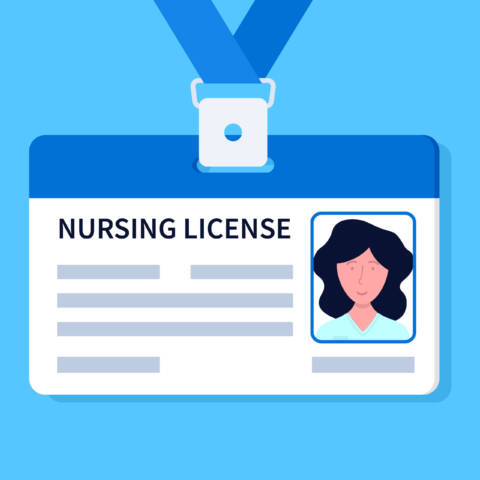What Is Nursing Licensure
Nursing licensure is a critical aspect of a nurse’s professional journey, representing a formal recognition of their qualifications and competence to practice nursing in a specific jurisdiction. It is a legal requirement in most states to ensure that nurses meet established standards of education, training and ethical conduct to provide safe and effective patient care. A nursing license grants individuals the legal authority to practice nursing within a defined scope of practice. It signifies that the nurse has met the minimum requirements set forth by the licensing authority. To qualify to sit for the formal licensing exam, test takers must have completed . They only gain certification after passing a standardized licensure examination (such as the NCLEX-RN in the United States) and meeting any additional state requirements for employment as a nurse. Obtaining and maintaining a nursing license is a multifaceted process that requires dedication, diligence and ongoing commitment to professional development. While the specific requirements may vary by jurisdiction, the overarching goal is to ensure that nurses possess the knowledge, skills and ethical standards necessary to provide safe and effective patient care. In addition to meeting initial licensure requirements, nurses must also fulfill ongoing obligations to maintain their licensure status. This often involves completing continuing education credits, renewing the license at regular intervals and adhering to the nursing code of ethics. By staying abreast of changes in healthcare regulations and best practices, nurses can uphold the highest standards of care and demonstrate their ongoing competency as healthcare professionals. Graduating from an accredited nursing program is the foundational first step on the path to obtaining a nursing license. These programs, offered by colleges, universities and vocational schools , provide aspiring nurses with the essential knowledge, skills and clinical training needed to excel in the field. Nursing programs must meet rigorous standards set by accrediting bodies to ensure they are providing the skills and modern clinical experience that healthcare employers are looking for in new nurses. Education at an accredited institution indicates graduates are well-prepared to enter the workforce and provide safe, competent patient care. One of the most critical requirements for obtaining a nursing license is passing a licensure examination, such as the NCLEX-RN (National Council Licensure Examination for Registered Nurses) or NCLEX-PN (for Practical Nurses). These examinations assess the candidate’s understanding of nursing theory, clinical skills and ability to apply critical thinking in various patient care scenarios. Passing the licensure exam demonstrates that the nurse possesses the necessary knowledge and competence to practice safely within their scope of practice. Many jurisdictions require nursing license applicants undergo a criminal background check as part of the licensure process. This check helps ensure the safety of patients by identifying any past criminal convictions or disciplinary actions that may raise concerns about the applicant’s suitability for licensure. Depending on the jurisdiction, certain criminal offenses may disqualify an individual from obtaining a nursing license, while others may require further review. Nursing license applicants may need to comply with additional state requirements specific to the area where they’re applying for nursing positions. You should look up the requirements with the division of professional registration for the state in which you’re seeking employment, such as the Missouri Division of Profession Registration. The defines the specific requirements for licensure requirements in the state. When considering different vocational schools that offer nursing diplomas or degree programs, it’s important to confirm accreditations prior to enrollment. Only the successful completion of a program offered by an accredited institution will allow you to sit for the relevant NCLEX exam. With our dedicated faculty and comprehensive curriculum, you’ll gain the knowledge and skills needed to excel in the dynamic field of healthcare. here on our website or get more information by calling us at 866-529-2070.

